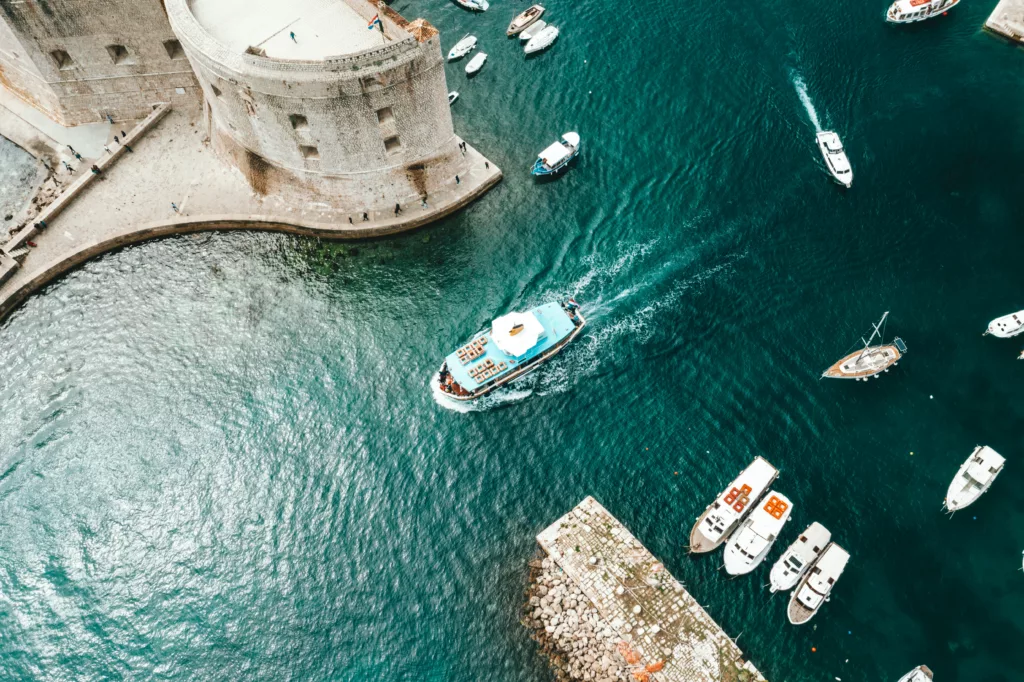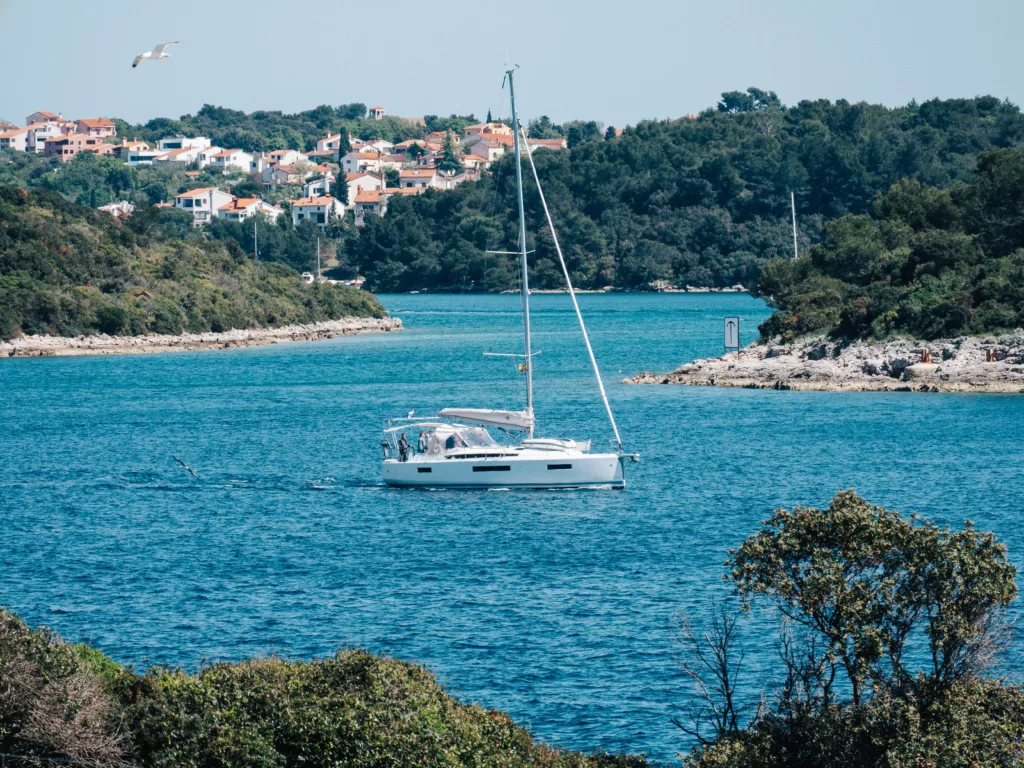Sailing the Croatian coast is on many travellers’ bucket lists and for good reason. The island-dotted Adriatic is perfect for week-long adventures, sunset cruising, or even a quick coastal escape. But there’s one catch that trips up more visitors than you’d expect: licensing.
If you’re an American planning to rent a boat, don’t assume your experience or local state license will be enough. Croatia has strict requirements, and failing to meet them could stop your trip before it starts. You’ll need to hold a boat license Croatia recognises and not all U.S. certifications qualify.
This guide explains exactly what you need, what Croatia accepts, and how to sail legally even if you don’t yet have a recognised boat license Croatia will approve.
Table of Contents

Is a License Required to Rent a Boat in Croatia?
Yes. If you’re planning to skipper a boat yourself, Croatian maritime law requires you to hold two documents: a valid boat license Croatia recognises and a VHF radio certificate. This applies to almost every powered vessel including motorboats, sailboats, catamarans, and even jet skis.
Without both documents, no charter company can legally let you take control of the vessel. It doesn’t matter if you’ve sailed for years; what matters is having the right paperwork. The boat license Croatia requires is enforced at every marina, especially during high season.
If you don’t have the necessary documents, you can still rent but only with a professional skipper onboard. It’s also worth noting that every booking requires a full crew list, including names and passport numbers for everyone.

What Kind of Boat Licenses Does Croatia Accept from the U.S.?
Croatia follows ICC (International Certificate of Competency) standards, but since the U.S. doesn’t issue ICCs, American sailors need an equivalent. The key is making sure your certification can be used as a valid boat license Croatia authorities will accept.
Some of the most commonly accepted certifications include Bareboat Cruising or Basic Cruising licenses issued by US Sailing, Bareboat Chartering from the American Sailing Association (ASA), and the International Sailing License and Credentials (SLC) from NauticEd. These are widely recognised and accepted by most charter companies operating in Croatia.
Other accepted credentials can include Coastal and Offshore Passage making courses, as well as the USCG OUPV or Master License. A handful of U.S. state boating licenses may also be valid, but you’ll need to check in advance. What matters most is whether the document is recognised by the Croatian Ministry of the Sea. If it’s not officially recognised, it won’t count as a legal boat license Croatia will accept.
Regardless of which you hold, you’ll also need a separate VHF radio certificate no exceptions. You can find more detailed information about the boat license requirements here.

What if You Don’t Have a Valid License?
If you don’t yet have a boat license Croatia will approve, you still have a few good options.
The easiest solution is to book a skippered charter. Your professional skipper handles the navigation and the legal requirements, so you can just relax and enjoy the sailing experience. It’s a great option for first-time visitors or those who want to learn more before skippering solo in the future.
Alternatively, you could complete a recognised course before your trip. Online academies like NauticEd allow you to obtain a valid SLC, while ASA and USSA offer in-person and hybrid options across the U.S. Some certifications can be completed in under a week. This route ensures you’ll have a proper boat license Croatia will recognise on arrival.
There’s also the small boat loophole boats under 5HP technically don’t require a license but these vessels aren’t practical for real exploration, and certainly not for multi-day island-hopping.
Do I Really Need a VHF Certificate?
Yes. Even with a valid skipper’s license, Croatian law requires that at least one person onboard holds a VHF radio certificate. It proves you can safely use marine communication systems, which are essential for docking, emergencies, and contact with the coast guard.
Some charter companies may accept a crew member holding the VHF cert, rather than the skipper. But that’s something to confirm well before you arrive not all providers accept this.
VHF courses can be taken online and typically include a short test. It’s a quick and straightforward way to meet one of Croatia’s most overlooked but critical requirements. Remember, both the VHF cert and a boat license Croatia recognises are required for bareboat charters.

Booking with Borrow A Boat
At Borrow A Boat, we help you cut through the confusion. Our platform lets you filter options based on license requirements, so you can immediately see which boats you’re qualified to rent or explore skippered options if needed.
Not sure whether your American license will be accepted? Share it with our team before booking and we’ll double-check with our partner operators. That way, there are no surprises when you show up at the dock. If you’re unsure whether it qualifies as a boat license Croatia accepts, we’re happy to verify it before you commit.
Final Word
Croatia may seem relaxed, but its boating laws aren’t. If you want to sail the Adriatic without stress, make sure you understand what kind of boat license Croatia requires and whether yours qualifies. If not, there’s still plenty of opportunity to get on the water. Whether that’s with a professional skipper or by completing a quick certification before your trip, the sea is waiting.
